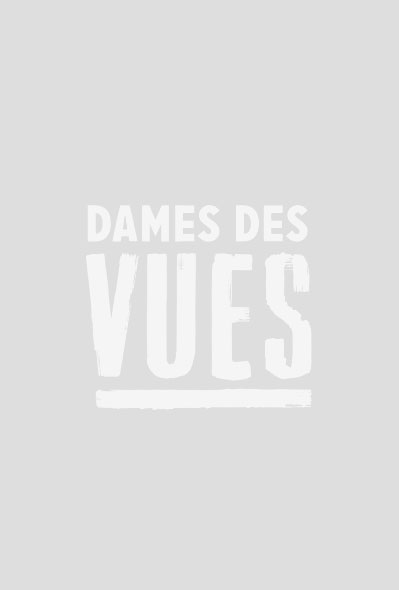Online cinema
Un léger vertige
Diane Poitras
Observateur de la scène politique et sociale, Philippe est journaliste pigiste. Entre deux «papiers», une entrevue à la radio ou un reportage à l’étranger, il se passionne sans répit pour l’actualité. Tout va pour le mieux jusqu’au moment où Catherine, sa fille de 15 ans, bousculera par ses projets d’adolescente un équilibre conquis avec les ans. Quitter l’école, faire du théâtre, travailler, vivre sa vie par elle-même, voilà les désirs de Catherine. Confronté à ces revendications, Philippe perd sa belle assurance et somme Catherine de faire preuve de lucidité. Ils se heurtent, se blessent : il a la force de l’expérience ; elle a l’audace de le mettre devant ses propres vérités et contradictions. Au fil de cette crise qui le déstabilisera, Philippe est forcé de réorganiser sa vie et de faire la part des choses. Le père et la fille se retrouveront, différents, changés, à la fois fébriles et plus confiants face à l’avenir.
Nicaragua, la guerre sale
Danièle Lacourse
This film shows the disastrous consequences of the war of the “contras” trained and supported by the United States government, against the civilian population in Nicaragua after the overthrow of the Somocista dictatorship by the Sandinistas.
Nuit et silence
Danièle Lacourse
Terrible images of the 30-year war between Ethiopia and its northern province, Eritrea. Famine, drought, napalm bombings and cluster bombs have killed thousands. This film shows, with lucidity and without falling into sensationalism, the horror that the Eritrean people endure daily: women and children torn to pieces or burned alive, hospitals destroyed, deficient international aid. After seeing this film, US senators and deputies urged their government to react. In this era when war is too often a spectacle, Nuit et silence gives it all its unbearable gravity.
Le pays interdit
Danièle Lacourse
In the midst of the 1984-85 famine, the Ethiopian government was spending a million dollars a day to wage war in its northern province of Eritrea. Yet, according to the UN, two days of military spending would have been enough to stop the desertification of Ethiopia. Shot from 1985 to 1989, this film traces the roots of the conflict and its terrible consequences for civilian populations. A Muslim poet and an Eritrean doctor talk about their fight for peace and to overcome age-old mentalities that hinder the realization of their rights and freedoms. Beyond the conflict, Mamazeinab and Assefaw Tekeste give us a glimpse of a different society, with innovative projects in health, education, women’s rights and environmental protection: fragile signs but which make possible hope.
El Mozote: l’histoire muselée
Danièle Lacourse
In December 1981, a small hamlet perched in the distant mountains of El Salvador was wiped off the map. The approximately thousand inhabitants of El Mozote, the majority of whom were children under the age of 12, were systematically murdered. An elite Salvadoran army battalion, trained by US military advisers, was returning to its base swearing absolute silence about what it had seen and done in El Mozote. For ten years, the governments of El Salvador and the United States have barricaded themselves behind a wall of silence and lies about the massacre. With the end of the war, the story of El Mozote resurfaces, and it is at the heart of debates on peace and reconciliation in El Salvador.
El Sueño de Alonso (Le rêve d’Alonso)
Danièle Lacourse
Dans un petit village du Chiapas au Mexique, Alonso fait un rêve prémonitoire. Comme des milliers d’autochtones mayas, il doit fuir son village pour rester en vie. Malgré les menaces de mort, il y retournera pour sauver sa famille et 330 civils pris en otage. Alonso nous guide dans un voyage à travers les rêves et les valeurs de sa culture, aujourd’hui menacée.
Le travail piégé
Dagmar Teufel
They are about one hundred thousand in Quebec… Women, for the most part mothers of young children, who, to acquire a certain financial autonomy or to balance the family budget, believe they have found the miracle solution: working from home… Miracle solution or exploitation?
Passiflore
Dagmar Teufel
Montréal, septembre 1984. À cinq jours d’intervalle, les Montréalais accueillent au Stade olympique Jean-Paul II et Michael Jackson. Quelle belle occasion pour tenter de cerner l’impact des médias sur les foules! Maniant l’ironie jusqu’à la causticité, mêlant les techniques d’animation, l’humour et la chanson, le film donne la parole à ceux et celles que marginalise le discours officiel de l’Église: homosexuels, lesbiennes, femmes violentées ou ayant subi un avortement.
Les polissons
Dagmar Teufel
Vibrant réquisitoire contre les maux de notre époque, ce film nous amène, à travers la parole des jeunes de Rouyn-Noranda, à réfléchir sur la qualité de notre environnement.
L’intelligence du coeur
Dagmar Teufel
De plus en plus de femmes réalisent bénévolement des actions sociales destinées à développer des ressources alternatives. Ce film examine les causes véritables de la non-reconnaissance politique et économique de ce réseau parallèle créé par les femmes pour transformer le tissu social.
Femmes en campagne
Dagmar Teufel
This film traces the exemplary history of the movement of women farmers in Quebec through the words of the main women pioneers.
«N» comme ne pas
Claudie Lévesque
Segment du projet collectif Un Abécédaire, initié par Vidéographe, qui compte 28 auteurs.


